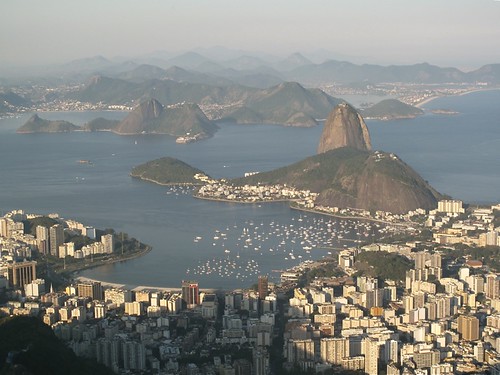At the opening of Rio+20 today, a number of Governments made their opening speeches in plenary. Those who mentioned the ocean as a particular area of concern are paraphrased below. The speeches are viewable at webtv.un.org.
The speeches will continue tomorrow.
Maldives
It is 20 years since the first Rio Conference and the world has a better appreciation of the magnitude of the challenges we face but in terms of action we have very little to show.
I would like to announce that the Maldives will become the first country to become a marine reserve we can do it in a short time - I hope in five years - it will become the single largest marine reserve in the world – it will allow only sustainable and eco-friendly fishing
It will exclude deep sea per seine and other destructive techniques – already Maldives is a sanctuary for turtles, sharks and may other species – trade in these products is now illegal in Maldives.
It is time we as leaders should make bold decisions for the future of our children.
Tuvalu
The oceans and seas are critical for ecosystem services and food security.
As a sea locked country with a vast EEZ of 900k sq km – in comparison with little land - in this context we are a blue economy, we continue to be heavily dependant on the responsible use of oceans and seas and their resources as our only livelihood.
Overfishing, IUU and loss of biodiversity among other threats must be addressed swiftly. The oceans produce more than half our oxygen and absorb the most carbon therefore keeping our oceans and seas healthy is a global need.
Sea level rise continues to be a concern which undermines our sustainable development and threatens our very existence as a nation.
Antigua Barbuda
Climate change, overfishing and others are problems not caused by us yet we are called here to carry that burden.
After 20 years we know these problems intimately we know there is climate change, we know there is overfishing we know there is sea level rise, we know species loss we know global warning.
We need support to tackle these problems.
New Zealand
New Zealand identified the sustainable management, conservation and protection of our oceans as an area for more ambitious collective action.
Fisheries support 170 million jobs and more than 1.5 billion people rely on marine resources for their protein intake.
Landlocked countries too are reliant on the oceans because of the impact of oceans on the global climate and because of the role they play in global trade.
New Zealand is particularly concerned about harmful fisheries subsidies which make a significant contribution to the worsening state of global fish stocks.
Subsidies create overcapacity, undermine fisheries management decisions and can contribute to illegal, unregulated and unreported fishing. New Zealand has looked for a commitment at Rio+20 to eliminate harmful subsidies in the fisheries sector.
Pacific Leaders urged the international community to work towards integrated oceans management, using the Pacific Oceanscape as a model.
Leaders urged the realisation of international goals that contribute to the health and vitality of the ocean environment, including through the global network of marine protected areas agreed at Rio+10.
Leaders also highlighted threats to the ocean environment, including from ocean acidification, pollution and illegal, unreported and unregulated fishing.
Finally, to ensure that Rio+20 included strong outcomes on the conservation and sustainable management of marine ecosystems and resources, Leaders called for the maximisation of returns from the conservation and sustainable management of ocean resources.
New Zealand sees ensuring small island developing states enjoy a greater share of their marine resources as a priority. They are amongst the most fragile economies in the world. Collectively we must do all we can to support their efforts to strengthen their resilience.
Brazil
Populations of many developing countries depend on ocean resources. Let us act with a sense of urgency—to protect marine high seas biodiversity and fish stocks, as well as to tackle the impacts of pollution and climate change. It’s in the text as agreed.
France
There has been an agreement to preserve the ocean. But these results, however, worthy as they are fall short of our responsibilities.
The oceans are becoming impoverished and acidified and because biodiversity has collapsed.
Therefore we need to have movement forward.
Brazil
The oceans require increasing attention. The populations of many developing countries depend on ocean resources. Let us act with a sense of urgency to protect marine high seas biodiversity and fish stocks, as well as to tackle the impacts of pollution and climate change. It’s in the text as agreed.
Photo courtesy of Charlie Phillips via Flickr (CC BY 2.0)

